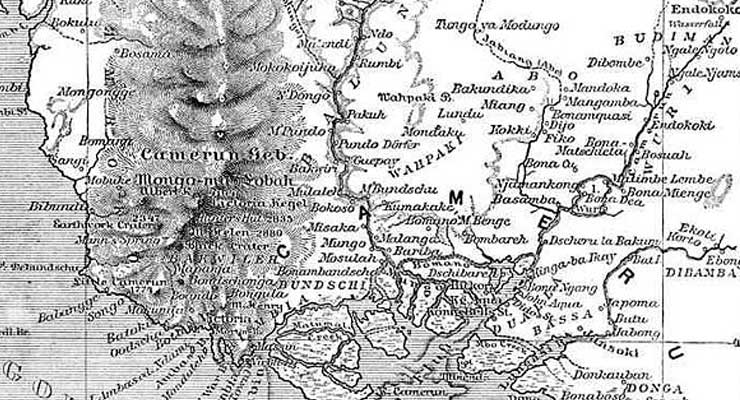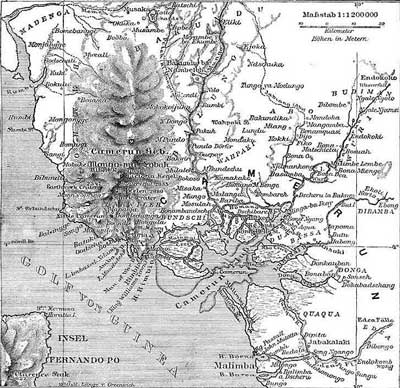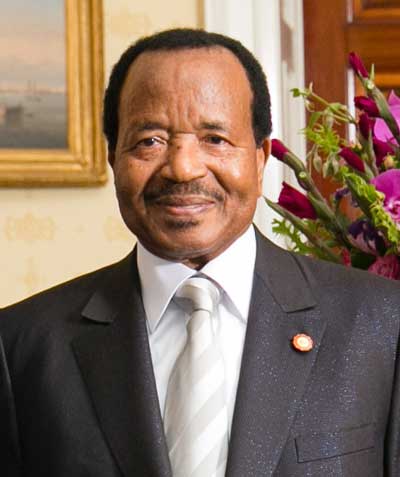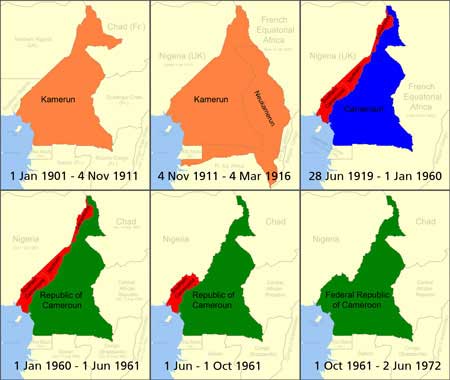This is part two of a series on Cameroon’s current crisis:

The current crisis
In a conference in Buea on 9 May 2015, lawyers from the NW and SW appealed to the Government to redress the problem of the erosion of the bilingual bi-cultural and bi-jural nature of the country in general and the destruction of the Common Law System in particular. The lawyers again requested that the Government should consider returning to the Federation as the best way of preserving the said nature and of protecting the Anglophone minority. The Government did nothing to redress the issue for over a year. The lawyers then called for a sit-in strike from 11-14 October 2016. Still nothing happened. As a result, the lawyers then decided to carry out a peaceful demonstration on 08 November 2016 in Bamenda but gendarmes dispersed them with tear gas and brutalised them, taking off their wigs and robes by force. As a result, the lawyers strike action was prolonged indefinitely.

On Monday 28 November 2016 students in Buea protested against certain malpractices by the Government-appointed Vice Chancellor. Not only were they tear-gassed but they were attacked right into their hostels and tortured in the most barbaric way. Footage emerged on social media of gendarmes speaking French asking students to roll-over on the mud and sewage while a gendarme pressed the face of a girl into the dirty, stinky and bacteria-infested mixture of mud and sewage. Also, more than 100 students were arbitrarily arrested.[ii] Tensions rose significantly from that moment and separation now seemed to be a far better choice than waiting for Government to solve the issues tabled by the lawyers and teachers.
The strike continued with the worst incidence of police brutality and killings happening in Bamenda on Thursday 08 December 2016. On that day the ruling Cameroon Peoples Democratic Movement (CPDM) tried to trail the successful main opposition party Social Democratic Front (SDF) rallies (25 November 2016 in Bamenda and 05 December 2016 in Buea) to “calm” the issue. After organising a largely boycotted and controversial rally on 06 December 2016 in Buea, the problem with their Bamenda CPDM rally of 08 December 2016 was that the main organiser of the CPDM rally was an Anglophone Government Minister Delegate who had earlier on damned the demands of the protesters saying that the Anglophone problem was a farce.
Even though the CPDM rally banner to be used during the rally proned bilingualism and bi-culturalism, the youths used social media to coordinate themselves on the streets and in the neighbourhoods to stop the rally. Despite the presence of Government forces, the youths effectively stopped the rally but Government forces responded with live rounds, killing at least three. These Government forces also brutalised and arrested more than 50 young men on that day. The strike has continued since then with incidents in other towns in the NW and SW as well as ghost towns.
Government’s sing-song of supposed external influence and initial institutional response
The Minister of Communication has repeatedly stated that the protests were as a result of external influence and that social media is a new form of terrorism. However, from what precedes, it is evident that the Anglophone problem is clearly about the annexation, marginalisation and assimilation of her citizens by LRC.

Unable to achieve economic fulfilment at home, many Anglophone youths have fled Cameroon. Their Anglo-Saxon background has facilitated their settlement and integration in Western countries like America, Canada, United Kingdom (UK), Australia…The transfers they send home have uplifted their brothers back in the NW and SW probably more than has the Government investment budget.[iii] This is a great incongruity because BSC is endowed with natural resources, the enjoyment thereof guaranteed by UN Resolution 1803 (XVII), but usurped by LRC for the exclusive benefit of France and Francophones. Anglophones who were never under French colonial rule are also forced to pay the French colonial tax. The Anglophone diaspora has swelled the ranks of the freedom movements abroad and is legitimately supplying ideas and support for any protest movements. They have demonstrated this during these strike actions notably through protests organised in front of various Western embassies in their countries of residence.

If Ahidjo alone could repeal the illegal Federation, and if the CPDM could in 2008 ask Biya to modify the current document that serves as Constitution in favour of unlimited presidential mandates, then why can a people of a nation that purportedly became independent in 1961 not ask for their right to inclusion in national life and of course to self-determination? Anglophones have shown extraordinary resilience despite dishonest treatment, torture and extra-judicial arrests and killings from successive Francophone-led Governments of LRC with their annexationist drives. In the name of harmonisation and national integration the Jacobin culture is absorbing the Anglo-Saxon culture. There is a serious deficiency in dialogue on the part of the Government and the desire to further frustrate Anglophones is shown by the rather provocative measures taken by the Government to respond to the lawyers and the teachers.
In effect, on 28 November 2016 the Permanent Secretary of the Organization for the Harmonization of Business Law in Africa (OHADA) handed the English version of the OHADA Law to the Government of Cameroon.[iv] Since then, the Government has behaved as if that was the only request of the lawyers. This has led to the lawyers hardening their stance and they have insisted on the creation of a Common Law Bar Association, withdrawal of Francophone magistrates from the NW and SW, re-establishment of the Common Law Bench at the Supreme Court, re-establishment of the Common Law Branch in the National Advanced School of Administration and Magistracy (ENAM) and a return to a Federation amongst other things.
As far as the demands of the teachers are concerned, the Prime Minister organised a meeting with the lawyers and the teachers in the weekend of 25-26 November 2016 in Bamenda. He agreed to satisfy a number of resolutions adopted during that meeting. On 30 November 2016 a statement from the Prime Minister’s office announced the recruitment of 1000 “bilingual teachers”, 2 billion Francs CFA for lay private and denominational schools and the creation of an ad-hoc committee to look into the problems tabled the teachers.
The teachers, Anglophones in general as well as several analysts have seen the term “bilingual teachers” as a ploy by Government to continue sending Francophones, (who generally have received elementary and secondary education under the Francophone sub-system), to the Anglo-saxon sub-system. In a thunderous speech at the National Assembly on 02 December 2016, Honourable Wirba Joseph slammed the 2 billion Francs stating that the Government now considers people of West Cameroon as her dogs that she can beat, maim and break bone and limb then throw “a piece of meat” for them to fight over.[v]
The teachers also questioned the legal and binding nature of the Prime Minister’s ad-hoc committee but however accepted to work within it. In the meantime their strike and that of the lawyers continued. In Bamenda, the taxi and bike drivers and traders joined the strike action on 05 December 2016. An uneasy calm has reigned in Anglophone Cameroon from then and all schools, public and private, have been affected. Schools closed two weeks before the end of the First Term and the universities of Buea and Bamenda are also paralysed. The Prime Minister said he feared the academic year might end without schools resuming. This could invite United Nations Educational, Scientific and Cultural Organization (UNESCO) sanctions. Also, the lawyers continued their strike.
[i] Observers France 24, “Au Cameroun, les Anglophone dénoncent leur “marginalisation” face au francophones”, consulted on 30 January 2017 from https://goo.gl/15F9Tu
[ii] Observers France 24, “Coups de matraque, humiliations : les étudiants de Buea réprimés pour avoir manifestés” conslulted on 30 January 2017 from https://goo.gl/UmXNDf
[iii] For example, for the 2017 fiscal year, the South Region in Francophone Cameroon (Paul Biya’s region of origin) with a population of a little over 750000 inhabitants was allocated more than 120 billion Francs CFA as investment budget while the NW and SW Regions combined with more than 4 million inhabitants received a meagre 85 billion Francs CFA.
[iv] OHADA, “OHADA Law: English version available in Cameroon”, consulted on 30 January 2017 from https://goo.gl/KV6Oce
[v] Cameroon- Hon Wirba tells parliament Enough is Enough, viewed on 18 December 2016 from https://www.youtube.com/watch?v=7ju6vHGgIx0
sylv says
This problem of the Anglophone Cameroon concerns each and every camerounain of good character.
The whole Cameroon is been taken in hostage by devastating unscrupulously Wolfs grouped to tore the flesh of the Cameroonians in an elan called Government.